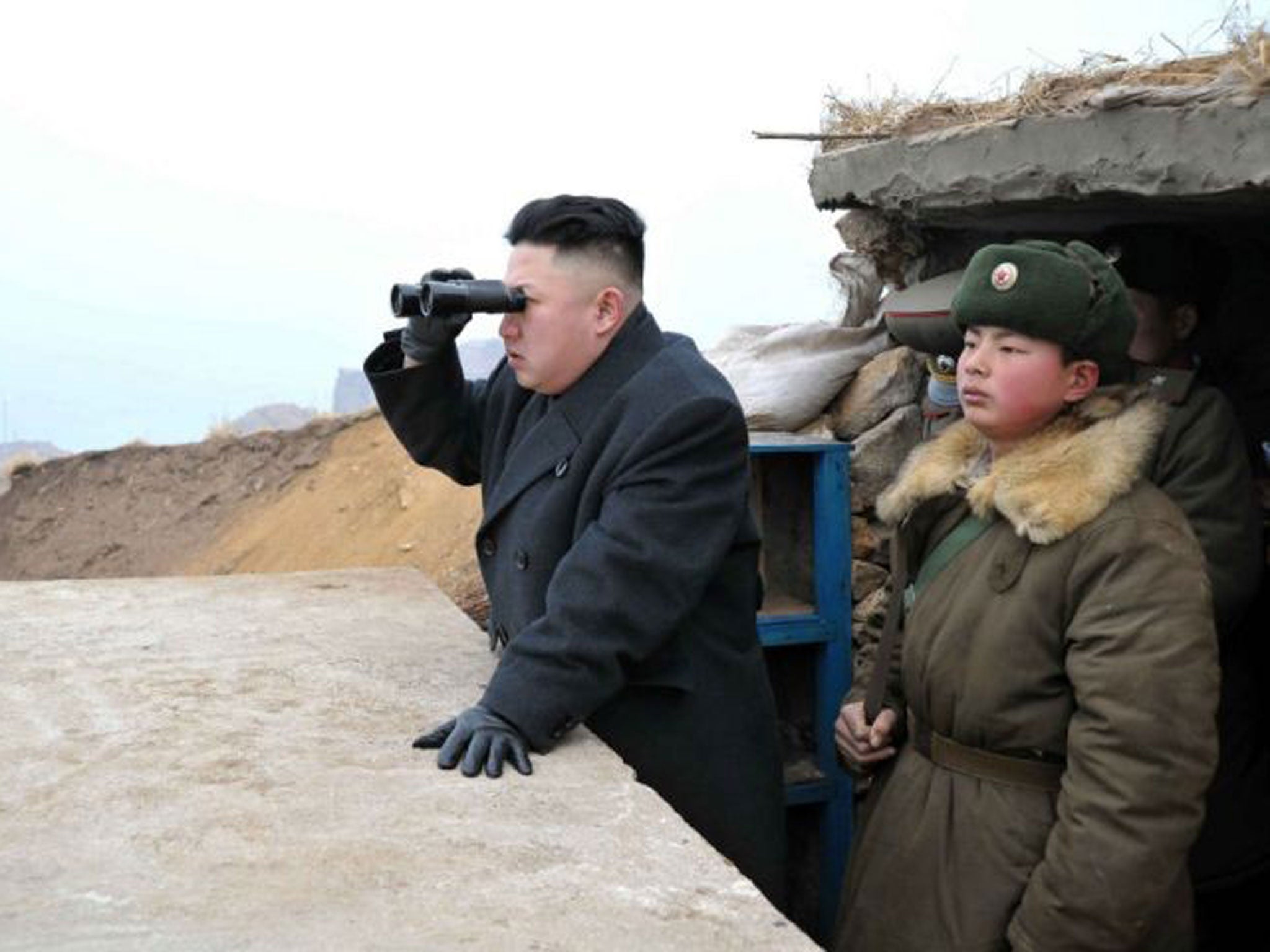‘All-out war’: now even China is spooked by Pyongyang’s threats
Tough UN sanctions draw angry response from Pyongyang as tensions rise in the area

A fragile peace that has existed in the Korean peninsula for nearly 60 years looked under threat today as North Korea scrapped all non-aggression pacts with the South and said it was ready for “all-out war”.
In some of the most devastating rhetoric to emanate from the North in decades, North Korea said it would nullify the armistice signed at the end of the Korean War in 1953 and terminate its hotline with Seoul. The blistering reaction to United Nations sanctions punishing Pyongyang for its third nuclear test last month prompted a rare call from China, the North’s only ally, for calm.
“China calls on the relevant parties to be calm and exercise restraint and avoid taking any further action that would cause any further escalations,” Hua Chunying, of China’s foreign ministry, said today.
While dramatic threats are not unusual from North Korea, today’s actions come a day after it threatened a pre-emptive nuclear strike against its enemies.
The seriousness of the standoff was clear as Supreme Leader Kim Jong-un, touring bases on the Yellow Sea, ordered his military to be ready to strike “at a moment’s notice”, according to Pyongyang Korean Central News Agency (KNCA). One picture showed him, in heavy dark coat, grinning along with several officers on a patrol boat, and another showed him peering through binoculars toward a nearby South Korean island.
Analysts suggest that North Korean leaders are hoping that grandiose threats will force the US and South Korea to back off from military exercises and bring about negotiations that would result in still more concessions.
In that spirit, General Kang Pyo-yong, deputy Defence Minister and probably the North’s most influential commander, declared the North’s “intercontinental ballistic missiles and other missiles are on standby” with miniaturised warheads able to turn Washington “into a sea of fire”. The KNCA fanned the flames, saying “a nuclear war may break out right now.”
In announcing the end of the “hotline” in the truce village of Panmunjom, where the Korean War armistice was signed, the KNCA said there was “nothing to talk to the puppet group of traitors about”.
North Korea last used the hotline 10 days ago when it relayed a message to the top US commander in the area threatening war if the US went ahead with annual military exercises that began this week.
A South Korean defence ministry spokesman declared “Kim Jong-un’s regime will perish from the earth” if the North made good on the threat. The White House spokesman Jay Carney said “the United States is fully capable of defending against any North Korean ballistic missile attack.”
A more realistic prospect, however, is that North Korea may attack South Korean forces in the Yellow Sea or across the demilitarised zone that has divided North from South Korea since the Korean War. South Korea has vowed to destroy North Korean bases in case of an attack – a threat, if carried out, that some analysts fear could precipitate a second Korean War.
North Korean forces staged two attacks against South Korea from the same bases in 2010, sinking a South Korean navy vessel with a torpedo fired by a mini-submarine. Then, eight months later, North Korean shore gunners blasted a South Korean island, killing two marines and two civilian contractors.
A critical question, however, was whether China will really enforce sanctions against North Korea, which China dominates economically. It has repeatedly voted in favour of UN sanctions imposed over the nuclear programme, but enforcement of the measures in China is patchy.
“China is likely to step in only if it means money out of their pockets,” Bruce Bechtol, an author of two books on North Korea, told South Korea’s Yonhap news agency. “If banks in China are targeted, and the US and other countries threaten to pull their funds out if business with the North Koreans continues, this will force the Chinese to take action.”
Subscribe to Independent Premium to bookmark this article
Want to bookmark your favourite articles and stories to read or reference later? Start your Independent Premium subscription today.

Join our commenting forum
Join thought-provoking conversations, follow other Independent readers and see their replies